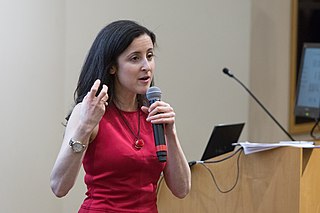Top 27 Quotes & Sayings by Sheri Fink
Explore popular quotes and sayings by an American journalist Sheri Fink.
Last updated on December 21, 2024.
While Hurricane Katrina demonstrated the dangers of failing to evacuate hospitals from the path of a storm, Hurricane Gustav demonstrated that moving thousands of sick people has its own risks. Gustav also highlighted a critical vulnerability of American hospitals - an inability to withstand prolonged blackouts.
Ever since Katrina, there has been a proliferation of efforts at the state level and among hospital administrators to come up with guidelines that would help professionals stuck in a situation like this to prioritize patients. These are questions of values much more than they are of medicine or nursing. They're the province of everybody.
Soon after a disaster passes, we tend to turn our eyes away and focus our resources on the day-to-day, rather than on preparing for the rare, but foreseeable and potentially catastrophic disaster. It's another form of triage, how much we invest in preparing for that, a very important question for public policy. We are a short-sighted species.
Also, and this may sound naïve, but since my early days in journalism, I've felt that getting as close as possible to truth, revealing the reality of a situation in detail, has its own persuasive power. This allows readers to look at the facts and the perspectives presented and draw informed conclusions.

















